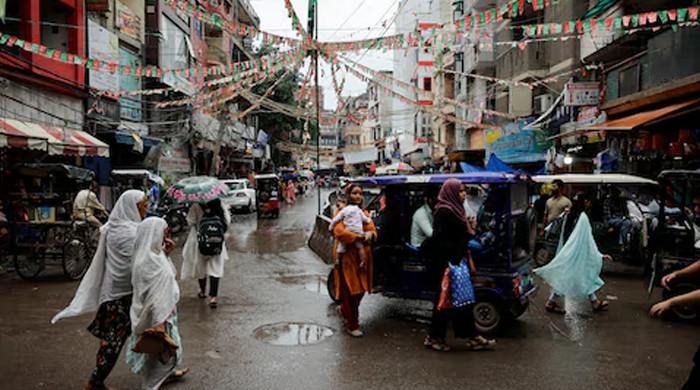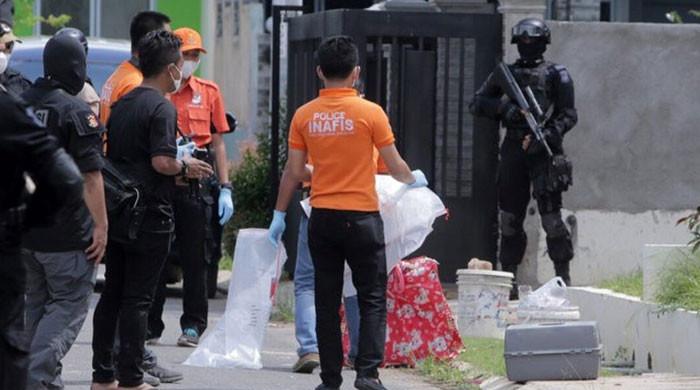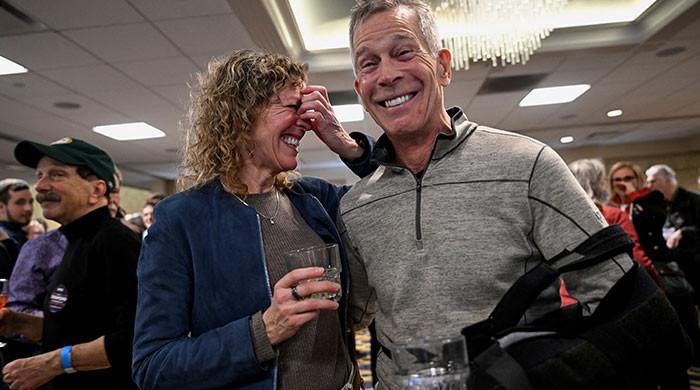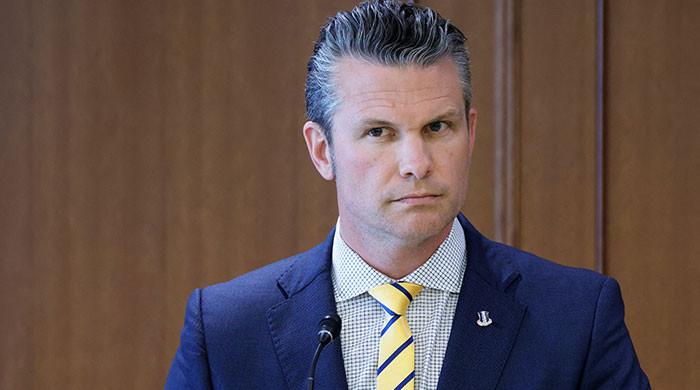'Occupy' protesters rally against 'predatory capitalism'
LONDON: Occupy protesters Saturday took to the streets of the City of London, Europe's financial capital, calling for an end to "predatory capitalism" and joining the global movement's day of...
May 13, 2012
On the continent, the biggest wave of protest was in crisis-hit Spain where thousands of "indignants" marched in some 80 towns around the country against economic injustice.
In the heart of London's financial centre, anti-capitalist protesters said they pitched around a dozen tents outside the Bank of England.
Earlier, the group of around 300 demonstrators went on a tour of the City's banking institutions before stopping outside the central bank, scene of the G20 protests in April 2009.
"The Bank of England stands right at the intersection of finance and government," said Occupy London supporter David Lincoln.
"In the light of Bank governor Mervyn King's recent comments about 'vested interests' standing in the way of reform of the financial sector, it is clear that that balance in the UK is fundamentally skewed.
"Hundreds of people gathering by the Bank of England is a powerful symbol of how things have to change."
The demonstrators, some waving the Occupy movement's trademark tents or wearing white "V for Vendetta" masks, held banners declaring "normal predatory capitalism", "we expect political democracy" and "shut down the 1 percent".
They gathered outside Saint Paul's Cathedral in spring sunshine for a "teach-out" from a series of speakers.
James Meadway, senior economist at the New Economics Foundation, told AFP: "This is a good turnout. The issues haven't gone away. The crisis is getting worse."
Norwegian student Ragnhild Freng Dale said the main achievement of the movement -- galvanised by anger over social inequality in the economic downturn -- was to attract people who did not normally see themselves as activists.
"The movement has made a big impact," she said.
Minor skirmishes broke out between protesters and police who briefly encircled the demonstration. Four people were arrested over public order offences.
Occupy organisers said in a statement: "Nowhere in Europe is the unequal distribution of wealth as striking as in the UK.
"The richest 1,000 persons, just 0.005 percent of the adult population, increased their wealth by #155 billion ($249 billion, 193 billion euros) over the last three years.
"That is enough for themselves alone to pay off the entire budget deficit and still leave them with #30 billion to spare."
Inspired by the Occupy Wall Street protesters who pitched tents in New York's Zuccotti Park last September, protest camps sprang up in dozens of countries worldwide, but the movement has since lost momentum.
In London, an Occupy camp outside St Paul's was evicted by police in February after four and a half months.
And in Madrid Saturday, authorities have vowed to stop protesters from camping out again in the city's central Puerta del Sol, the cradle of the "indignants" popular movement against spending cuts, inequality, bankers and sky-high unemployment.
The marches on Saturday launch a four-day protest that will end on May 15, the anniversary of the movement's birth.
In Belgrade on Saturday, several dozen supporters of what they call the 99 percent movement demonstrated without incident in the city centre.
Organisers handed out anti-globalisation leaflets with slogans such as "Stop NATO", "The bosses have won the elections again", and had anti-capitalist banners. (AFP)











